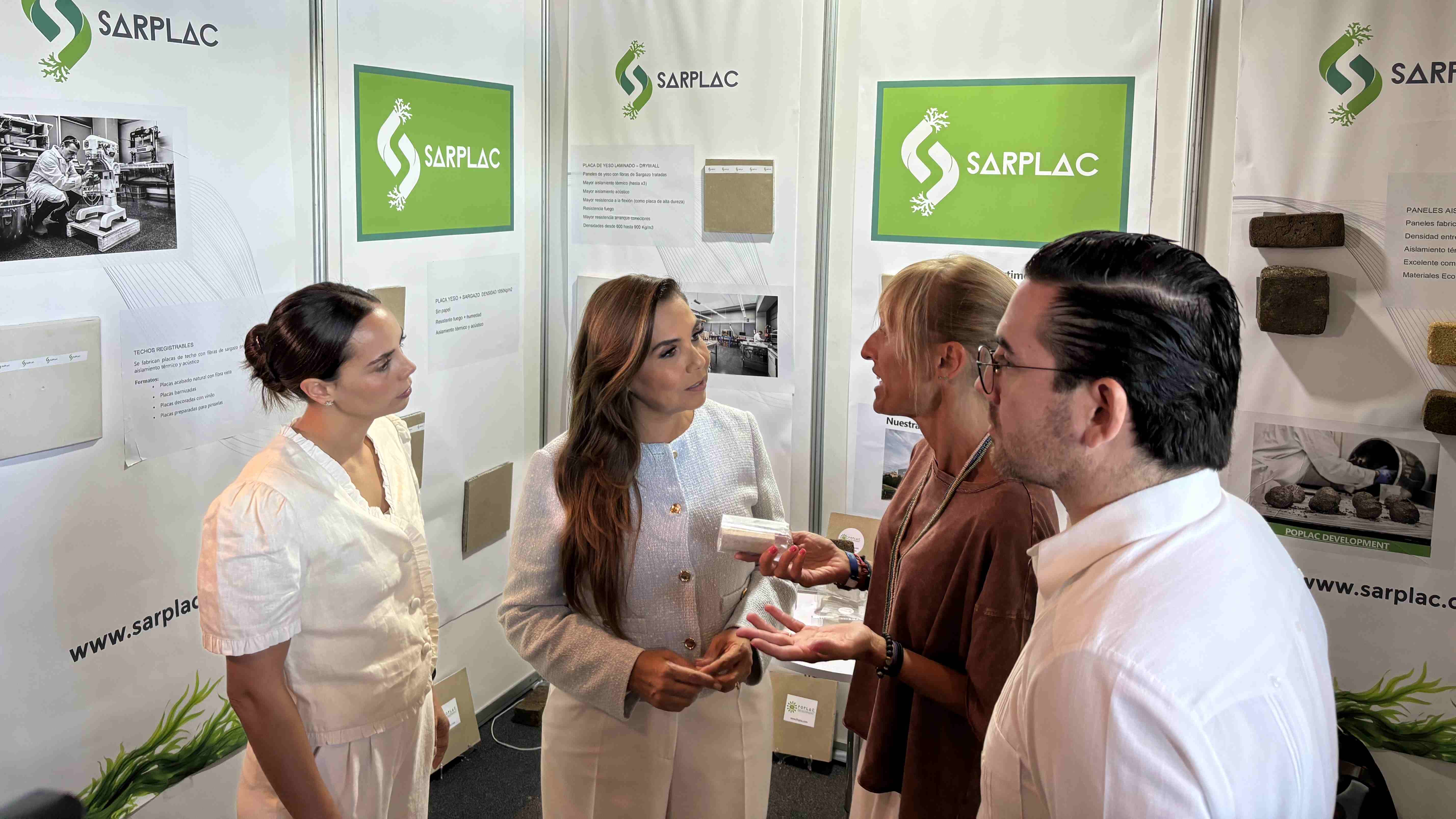Poplac Development, a company located at the University of Valencia Science Park, participated in the Mexico-European Union National Forum "Turning sargassum into an opportunity", held in Cancun on July 18 and 19, where more than 40 companies specialized in the use of this marine material participated to comprehensively address this persistent phenomenon that demands global attention
The inauguration was in charge of the Governor of the State of Quintana Roo Mara Lezama, who was accompanied by Gautier Mignot, Ambassador of the Delegation of the European Union in Mexico. Mignot emphasized the need to address the sargassum problem from multiple angles, stressing that it is not a challenge exclusive to the Caribbean, but a transnational problem that requires solutions in terms of regulations, production and financial development.
Mignot stressed that the companies present, which have already started working with the sargassum, are a fundamental part of the value chain necessary to not only remove sargassum from the sea, but also to promote a circular economy that promotes the creation of a new industry. So far, he said, all the affected islands and countries are doing their best to manage the seaweed, so he insisted that the important thing is to coordinate all these strategies "we have to attack the problem from all angles, all the issues, research, promoting innovation, governance system, but above all practical solutions," said the European representative.
What needs to be done, he said, is to accelerate the value chains, because it has been demonstrated through various companies that there are many solutions for the valorization of sargassum, the issue now is how to promote them and find financing programs. He said that to follow up on everything that has been worked on in this forum, a regional event on sargassum will be held in early October on the island of Grenada, within the framework of the European Global Gateway strategy, which aims to support precisely this solution at the regional level, which also affects European Member States, such as the Netherlands and France, which have territories in the Caribbean.
Another relevant approach, said Mignot, is that they must take into account technological solutions so that the treatment of sargassum is safe for workers and obviously for consumers of products made with this raw material and governance is also very important in the issue of collection. "It is an overall problem that must be treated as such, but we see that there are solutions in many areas: in construction, in cosmetics, in textiles, in shoes, in bioenergy, the issue of new sustainable fuels for aviation... Many possibilities, now we must obviously see not only the public authority, international donors, but which are the most profitable and most valuable, the market and the private sector, but then we must build funding sources," he added.
The forum held in Cancun was attended by 40 companies, which presented a product that includes sargassum, but there are many more that are taking advantage of this material.
Poplac Development
Poplac Development, a company housed at the Parc Científic, presented its building material solutions called SARPLAC at the forum. Using twill to manufacture gypsum plasterboard with improved properties, offering better thermal and acoustic insulation, as well as a significant improvement in the strength of the board. These boards can be used for partition walls or ceilings complying with ASTM and UNE 520 board standards.
Also, using the sargassum, they manufacture a thermal and acoustic insulation panel to insulate homes or premises, providing insulation similar to rock wool or fiberglass, and with an excellent response to fire.
The idea and formulations have been designed by chemical engineer Ana Blasco and patented by the company through a PCT patent. "What we do is a construction material such as insulation, which would replace polyurethane foam, but our material is 85 percent sargassum, it is not combustible, the smoke it emits is not polluting. On the other hand, we have drywall, which is three times more resistant to bending than the traditional one, it contains 15 percent sargassum and also has thermal and acoustic properties incorporated by the fact that it contains sargassum fibers", described the researcher and technical director of Poplac.
"Here in Mexico a lot of drywall is consumed, many square meters per year, so I think we would be reducing CO2 emissions by 15 percent if we introduce the sargassum and it is very easy and has no cost for them to incorporate a tank and add our formula, the costs are minimal and the material has the same price, otherwise we could not go to market," he said.


